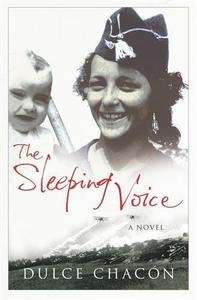Sleeping Voice

Resumen del libro
Dulce Chacón's book has had an immense success in Spain, no doubt because the novelist speaks with a just and powerful voice, and because she has allowed women - the most anonymous, the most suppressed, the most silenced - to speak out' Le Monde
It is 1939. In the Ventas prison in Madrid a group of women have been incarcerated. Their crime is to have supported or fought on the Republican side in Spain's cruel and devastating Civil War. Chief among them are Hortensia, who fought with the militia and is pregnant by her husband Felipe - a man still at large and fighting against Franco's dictatorship - and who lives with the knowledge that she will be shot after she gives birth; sixteen-year-old Elvira, who tried to leave Spain with her mother, but was arrested by the Falangists while she was boarding their ship; Tomasa, whose husband, four sons and daughter-in-law were thrown off a bridge; and Pepita, Hortensia's sister, who from outside the prison acts as messenger between her and her husband.
Dulce Chacón's deeply moving novel is based on the actual testimonies of a number of women who survived the Spanish Civil War, and suffered imprisonment under the France regime, as well as on accounts of others who died fighting for freedom. A bestseller in Spain, where it was voted 'Book of the year', The Sleeping Voice is remarkable for its combination of dramatic intensity and historical authenticity.
Biografía del autor
Dulce Chacón (Zafra, 1954-Madrid, 2003), poeta y novelista, publicó los libros de poemas: Querrán ponerle nombre (1992), Las palabras de la piedra (1993), Contra el desprestigio de la altura (Premio de Poesía Ciudad de Irún 1995) y Matar al ángel (1999), todos ellos recogidos en el volumen Cuatro gotas (2003). Como narradora publicó las novelas: Algún amor que no mate (1996), Blanca vuela mañana (1997), Háblame, musa, de aquel varón (1998), Cielos de barro (Premio Azorín 2000) y La voz dormida (Alfaguara, 2002), Premio al Libro del Año 2002 del Gremio de Libreros de Madrid, y traducida al francés y al portugués. También es autora de la obra de teatro Segunda mano (1998) y de la versión de Algún amor que no mate (2002), nominada a los premios Max 2004 a la mejor autora teatral en castellano.








